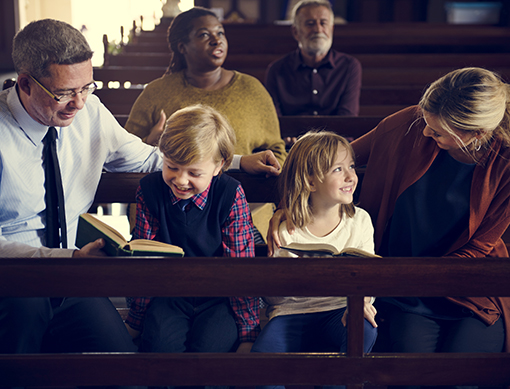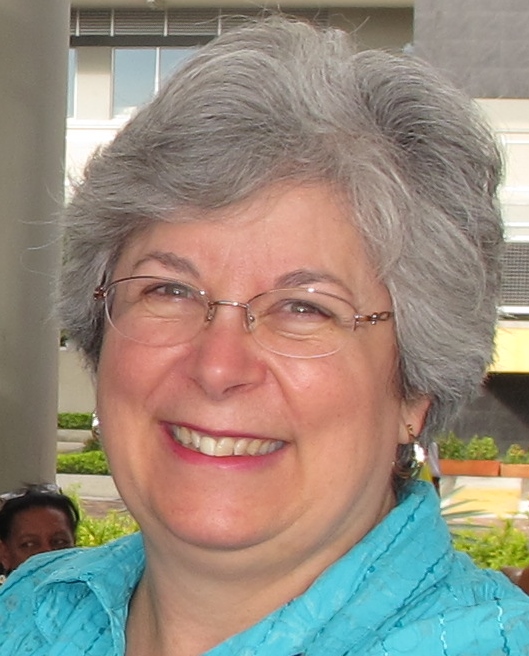Research shows that the biggest predictor of adult religious practice is a sense and practice of religion in childhood. How do children develop an early sense of religion? According to the research, the first factor was that parents spoke about God and faith at home, in daily conversation. Also important, and often more influential, are the Catholic school and parish faith formation community. Being part of a faith community, both at home and in the parish and school helps those important conversations happen.
 We hope for strong faith environments in homes, but we aim to reinforce and supplement the efforts of parents. The 2020 General Directory for Catechesis reminds us that teachers are evangelizers who put students in touch and in communion with Jesus Christ. Whether you teach in a Catholic school or a Parish Faith Formation Program, this guidance applies to you:
We hope for strong faith environments in homes, but we aim to reinforce and supplement the efforts of parents. The 2020 General Directory for Catechesis reminds us that teachers are evangelizers who put students in touch and in communion with Jesus Christ. Whether you teach in a Catholic school or a Parish Faith Formation Program, this guidance applies to you:
“As the vitality of the human body depends on the proper function of all of its organs, so also the maturation of the Christian life requires that it be cultivated in all its dimensions: knowledge of the faith, liturgical life, moral formation, prayer, belonging to community, missionary spirit. When catechesis omits one of these elements, the Christian faith does not attain full development.” (General Directory, 87)
RCL Benziger Blest Are We Faith in Action, Be My Disciples, and Family Life have been designed to provide teachers and parents with a rich assortment of activities and lessons to accomplish each of these six tasks.
- Knowledge of the Faith
- Liturgical Education
- Moral Formation
- Teaching to Pray
- Education for Community
- Missionary Initiation
The General Directory reminds us: “These tasks are interdependent and develop together. Each great catechetical theme—catechesis of God the Father, for example—has a cognitive dimension as well as moral implications. It is interiorized in prayer and appropriated in witness. One task echoes the other: knowledge of the faith prepares for mission; the sacramental life gives strength for moral transformation.” (General Directory, 87)
In our classrooms, we are called to “develop an atmosphere animated by a spirit of liberty and charity; to enable young people, while developing their own personality, to grow at the same time in that new life which has been given them in baptism; and to orientate the whole of human culture to the message of salvation’" (General Directory, 259)
Jesus is our model for evangelization. His willingness to accompany people motivates us to reach out with joyful hearts to students in the most challenged situations: “Moved by his example, we want to enter fully into the fabric of society, sharing the lives of all, listening to their concerns, helping them materially and spiritually in their needs, rejoicing with those who rejoice, weeping with those who weep; arm in arm with others, we are committed to building a new world” (Joy of the Gospel, 269).
References:
- Pope Francis, Apostolic Exhortation, The Joy of the Gospel (Evangelii Gaudium), Vatican, 2013. https://www.vatican.va/content/francesco/en/apost_exhortations/documents/papa-francesco_esortazione-ap_20131124_evangelii-gaudium.html
- General Directory for Catechesis, Congregation for the Clergy, Vatican, 2020. https://www.vatican.va/roman_curia/congregations/cclergy/documents/rc_con_ccatheduc_doc_17041998_directory-for-catechesis_en.html
 About the Author
About the AuthorDr. Lauri Przybysz specializes in equipping families to live their vocation to be domestic churches and signs of God’s love. Lauri received the Doctor of Ministry from the Catholic University of America, and she has been both a Catholic middle school religion teacher and a faith formation coordinator at the archdiocesan and parish levels. She is the mother of six children and grandmother of 21.
Product Highlight
Family Life Second Edition
Family Life Second Edition is the newly updated edition of RCL Benziger’s leading K-8 supplemental program that addresses key concerns of today’s Catholic families. In every grade level, Family Life includes child safety education, promotes virtuous living, and strengthens Catholic identity.
The Family Life program reinforces the Catholic virtues and values that your students attain with their education. Family Life is an essential component for your school-based religious education program, and meets Social and Emotional Learning (SEL) standards and benchmarks.
